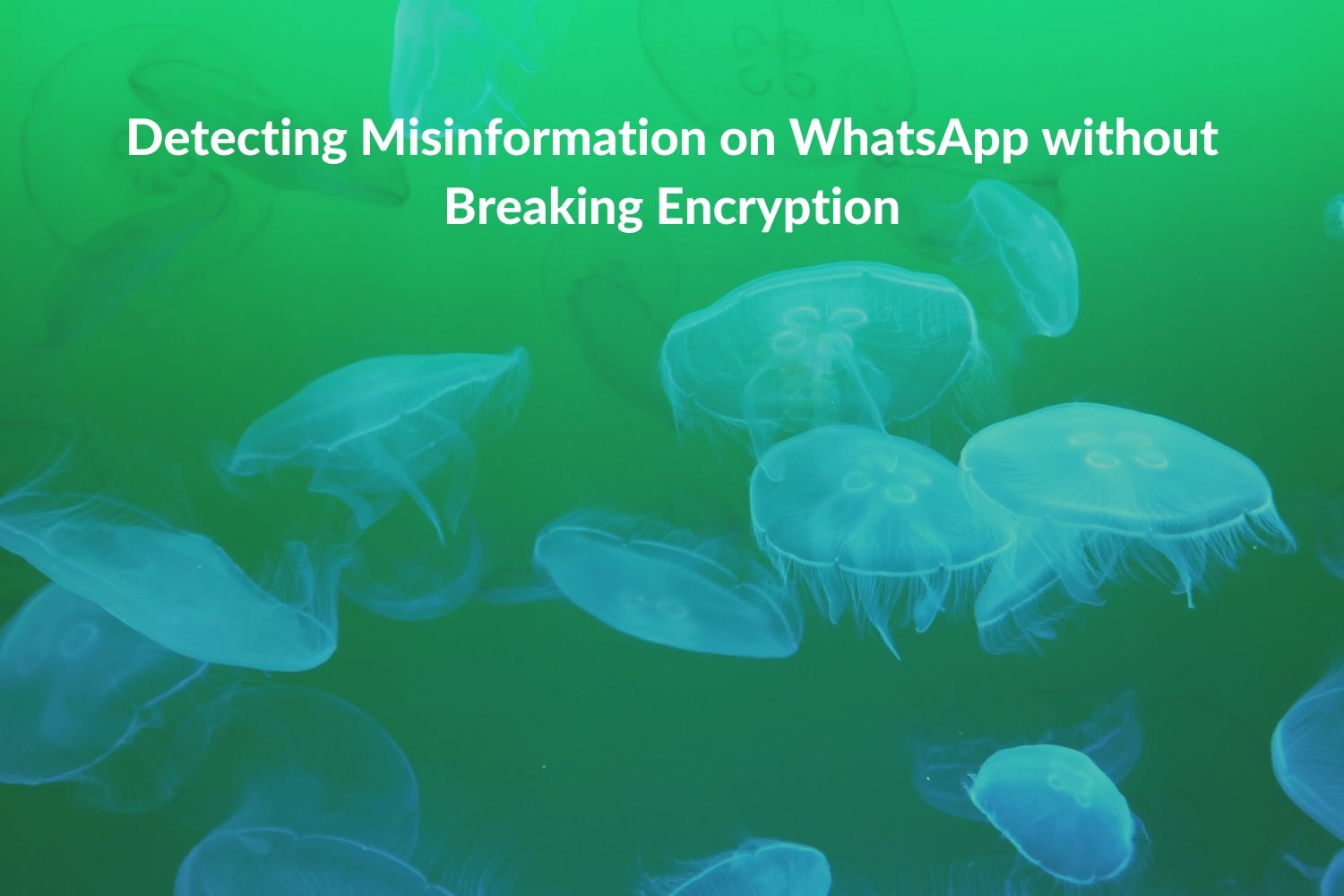

Summary contributed by Brooke Criswell (@Brooke_Criswell). She’s pursuing a PhD. in media psychology, and has extensive experience in marketing & communications.
*Reference at the bottom
Facebook may own WhatsApp, but it is different from that of typical social media sites such as Facebook and Twitter. WhatsApp has end-to-end encryption that has made this app unique in communication with others. WhatsApp has over 1.5 billion users and has become a source for sharing news in countries like Brazil and India, where smartphone’s use for news access is higher than other devices (Reis et al., 2020). This research study focuses on Brazil and India’s two countries and how misinformation has affected the democratic discussion in these countries. There are over 55 billion messages sent a day, with about 4.5 billion messages are images (Reis et al., 2020). Due to the nature of encryption, there is no way that WhatsApp monitors or flags inappropriate or potentially dangerous or fake images as Facebook has the capability of doing. The researchers propose an approach with machine learning, where WhatsApp can automatically detect when a user shares images and videos that have previously been labeled as misinformation with the Facebook database. This would abide by the E2EE and not compromise the encryption or privacy of the user (Reis et al., 2020).
Facebook already has a lot of partnerships with fact-checking agencies around the world, and so the database would not be difficult to obtain. Algorithms would be implemented for hashing and matching similar media content. “A hashing algorithm provides a signature to represent an image or video” (Reis et al., 2020). The researchers were focused on two types of hash functions for this proposal. The first being cryptographic has and the second being perceptual has. A cryptographic has is a one way has function based on techniques like MD5 or SHA and processes a string has given an image. It would be used to identify exact matches only, whereas the perceptual hash could identify similar images and be notified even if the image was altered (Reis et al., 2020).
There are already multiple algorithms, including Facebook PDQ hashing, that allows this to be done.
Another part of this model would be once a user intends to send an image, WhatsApp checks whether it is already in the hashed set. If so, the warning confirmation asks if the user wants to share this information (Reis et al., 2020). When the recipient user gets the message, WhatsApp decrypts the image on the phone, obtains a perceptual hash, and the content is then flagged if it is in the already checked database (Reis et al., 2020). The warning message would also include where the item was already fact-checked.
This new method could also be a benefit for Facebook as they could collect data on how many times a match occurred and establish the prevalence and virality of different types of misinformation and collect information about the users who repeatedly send such content (Reis et al., 2020).
With this idea in mind, the researchers went ahead and tested it in Brazil and India. They had 17,465 users in Brazil, with 34,109 images and 63,500 users in India with 810,000 images. The dataset they used was publicly available.
In the study, the fact-checked images by crawling all images from popular fact-checking websites from Brazil and India. Then, they obtained the date in which they were fact-checked. Next, they used Google reverse image search to check whether one of the main fact-checking domains were returned. If the image passed their test, it was added to the last collection, which has over 100,000 facts checked pictures from Brazil and about 20,000 from India (Reis et al., 2020).
Next, they used the PDQ hashing to implement their algorithm of clustering similar or identical images together.
In their findings, the results showed that 40.7 percent of the misinformation images in Brazil and 82.2 percent of the misinformation image shares in India could have been avoided by flagging the image and preventing it from being forwarded after being fact-checked (Reis et al., 2020).
This study shows just how important it is for technology companies to inform their users of the information they are sending and make an educated decision on what information they want to spread to others.
Reis, J. C. S., Melo, P., Garimella, K., & Benecenuto, F. (2020). Detecting Misinformation on WhatsApp without Breaking Encryption. https://arxiv.org/abs/2006.02471.
